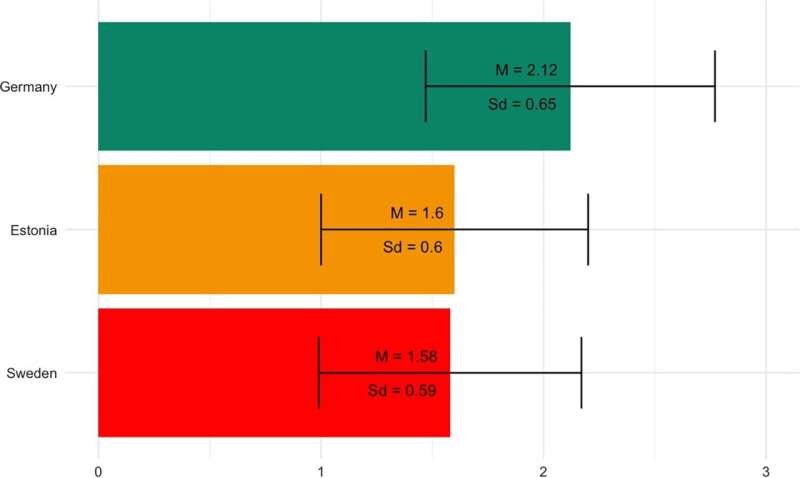This article has been reviewed according to Science X's editorial process and policies. Editors have highlighted the following attributes while ensuring the content's credibility:
fact-checked
proofread
More public-sector decisions are being made by AI—but what do people think about this?

Technical aids are advancing and automated decision-making is becoming increasingly common in the public sector—but what do people really think about think about this trend? A new study from Södertörn University in Sweden has shed light on the issue.
"Our analysis shows that people are generally not aware of their rights regarding how they contribute data for use in automated decision-making. However, people's attitudes towards specific uses differ greatly between the countries included in the study: Estonia, Sweden and Germany," says Anne Kaun, professor of media and communication studies.
Automated decision-making uses algorithms and artificial intelligence to make decisions that were previously made by administrators and other officials. For example, in Sweden, Strängnäs Municipality has worked on producing a linguistic model to help administrators prioritize reports of concern to social services.
Differences in trust
The study, recently published in the Information, Communication and Society journal also shows that citizens of Estonia and Sweden are more positive than those of Germany when it comes to automation. According to Anne Kaun and her colleagues, Anders Olof Larsson and Anu Masso, this could be due to cultural differences between the countries and variations in people's level of trust in authorities.
"Automation can lead to more efficient processes and reduced costs, but it can also result in less transparency and fewer demands for responsibility. When decisions are made by algorithms instead of people, understanding the basis for decision-making can be difficult, and even make people perceive the decision as unfair," says Anne Kaun.
Informing the public
The researchers perceive a need to inform the public about issues relating to automated decision-making and to increase involvement in these issues. Citizens must be informed of their rights when it comes to providing data for the system. They should also, say the researchers, have the opportunity to influence the format of systems and how they are implemented.
"It is important that we not only see the benefits of digitalization, but also the challenges, even its disadvantages," she says.
The issue of people's attitudes towards these questions was recently highlighted during an event on sustainable AI, which examined how the EU can promote innovation in AI to help solve the climate crisis. The participants were a combination of decision-makers, tech developers and researchers, along with representatives from civil society, including the former archbishop of Uppsala Antje Jackelen.
"Meetings such as this one demonstrate the importance of bringing together a range of perspectives on technology: from academia, politics and industry and, not least, civil society. However, finding a shared means of expression is a challenge, as is not getting stuck in very abstract discussions. My takeaway was that our research does contribute a perspective that is often forgotten, namely that of ordinary people and civil society, and—unfortunately—that in some contexts, emphasizing this perspective is difficult," Kaun concludes.
More information: Anne Kaun et al, Automating public administration: citizens' attitudes towards automated decision-making across Estonia, Sweden, and Germany, Information, Communication & Society (2023). DOI: 10.1080/1369118X.2023.2205493
















